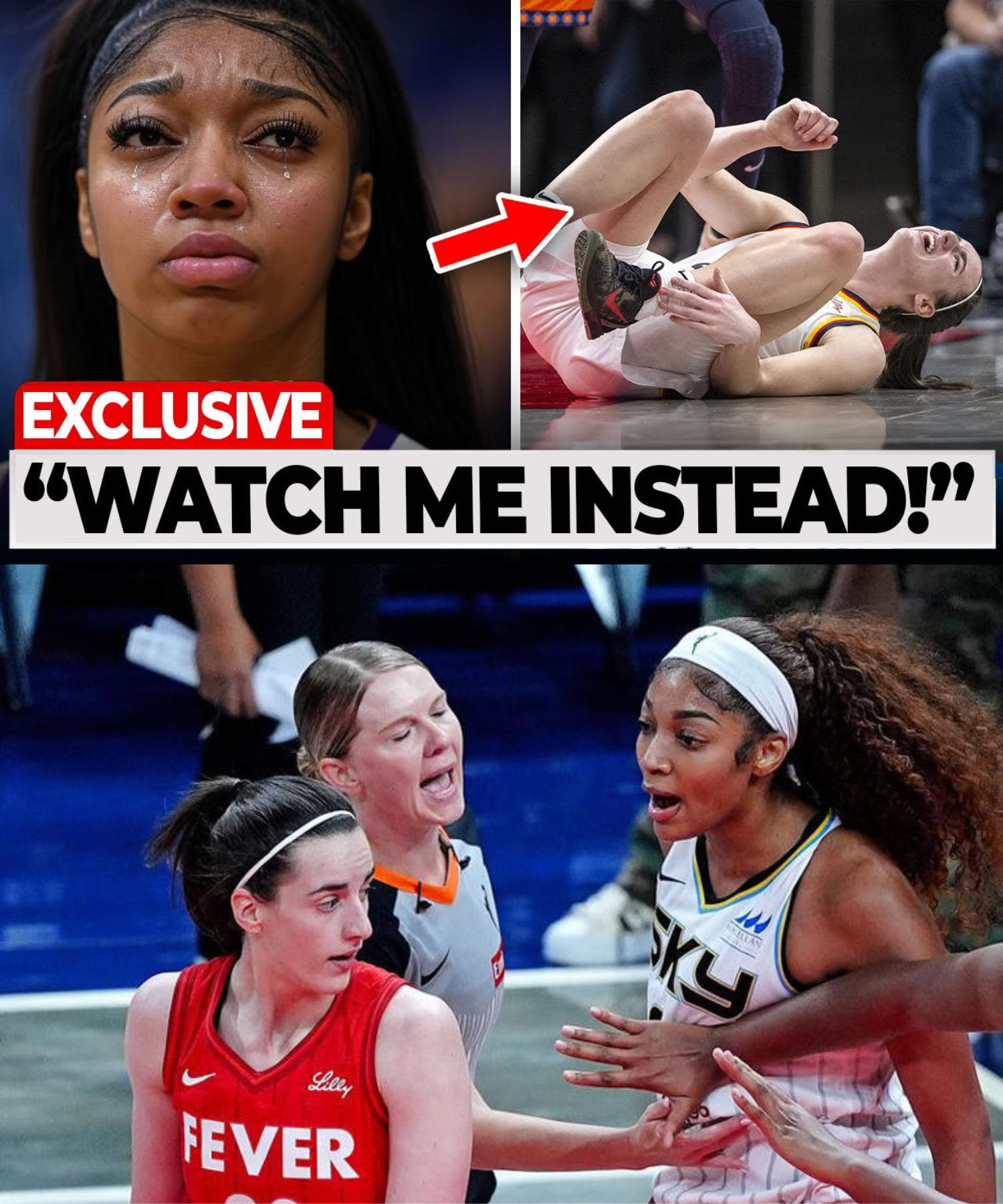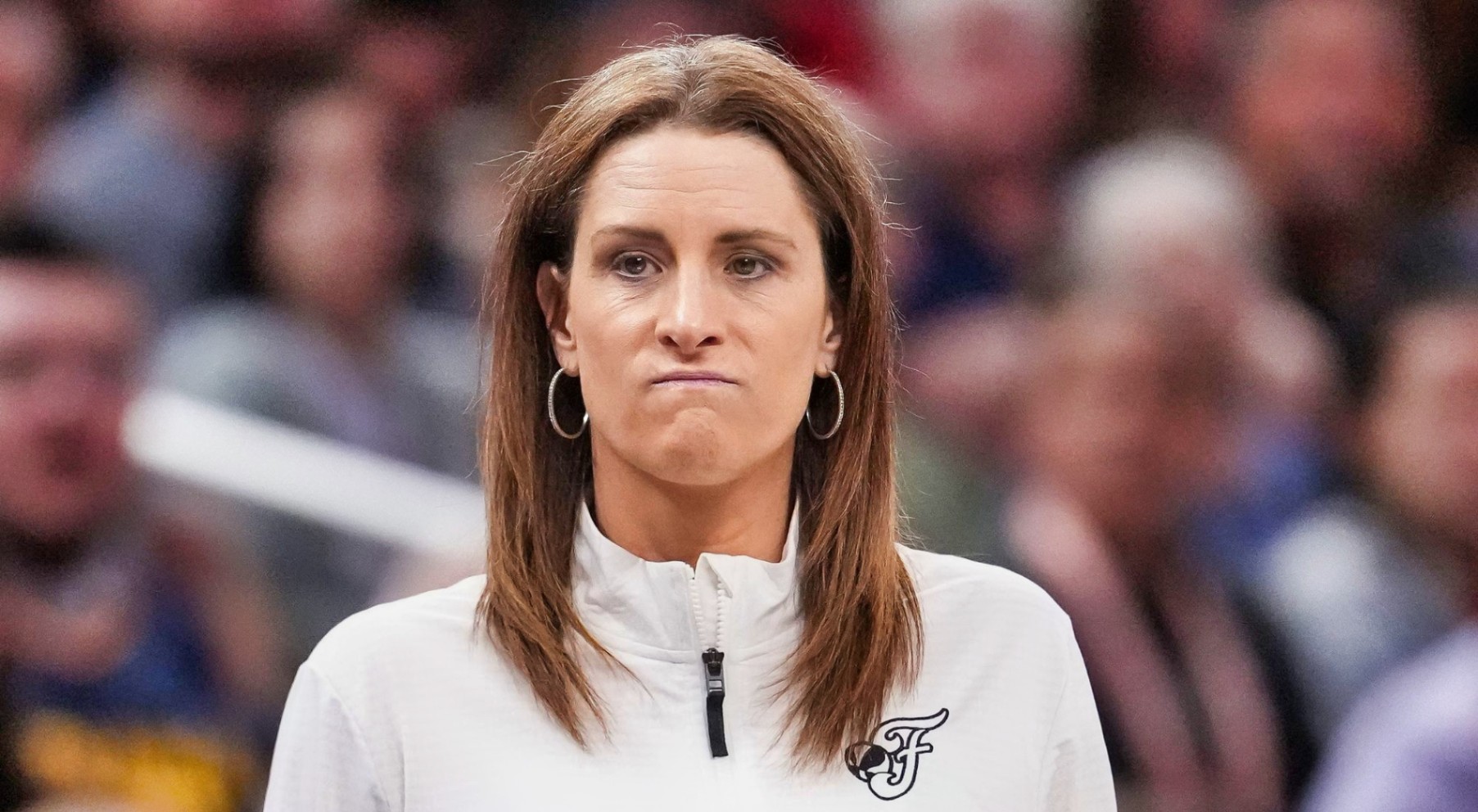
In a volley that has set the WNBA world ablaze, Las Vegas Aces superstar A’ja Wilson publicly voiced her frustration at the meteoric rise of rookie phenom Caitlin Clark, bluntly suggesting that a key driver of Clark’s popularity is her race. The remarks—captured in a Tuesday afternoon live segment on WNBAUpdates—mark perhaps the most explosive moment in the ongoing debate over race, marketability, and the future of women’s professional basketball. Now, with fans and fellow players weighing in, the league confronts one of its most contentious conversations to date.
Wilson’s Candid Confession: “It’s Because She’s White”
Speaking to host Marcus “Moe” Montgomery just minutes after hearing Clark’s jersey had once again topped sales charts, Wilson didn’t mince words:
“Let’s be honest—Caitlin’s breaking records, but a big part of that is because she’s a white girl from Iowa,” Wilson declared, arms folded and voice tinged with exasperation.
“We all see it. It’s not just her talent—it’s the optics. And that frustrates me.”
The on-air admission drew an immediate gasp from Montgomery and prompted an avalanche of reaction on social media. Wilson went on:
“I’m proud of every woman in this league—Black, white, every background. But if you’re asking why Clark’s merch flies off shelves while our MVP jerseys lag, part of it is the mainstream’s bias. That’s tough to swallow.”
The Context: Clark’s Breakneck Ascent
Since her highly publicized arrival in the WNBA, Clark has become a whirlwind of broken records and runaway popularity:
Jersey Sales: Her name ranks first leaguewide, selling out within hours of every restock.
TV Ratings: Fever home games now routinely draw more viewers than established Aces–Sky showdowns.
Social Media: Her highlight reels rack up millions of views across platforms.
By contrast, Wilson—fresh off an MVP campaign and a second championship ring—finds her own superstar status overshadowed by the Clark craze, despite leading the Aces to a blistering 10–3 start.
Fan Reactions: #ProtectCaitlin vs. #WilsonSpeaksTruth
Social media lit up in seconds, with fans polarized along familiar lines:
#ProtectCaitlin: Supporters called Wilson’s comments “tone-deaf” and “diminishing Clark’s hard work.”
#WilsonSpeaksTruth: Others praised Wilson for “calling out uncomfortable realities” and “speaking for the rest of the league.”
One Fever fan tweeted:
“Caitlin’s popularity is earned—on record crowds and highlight plays. To reduce it to race is disrespectful.”
Conversely, a longtime Aces devotee posted:
“A’ja’s right. There’s a double standard—and she’s the one with the courage to call it out.”
League Office: Walking a Tightrope
The WNBA’s front office has tersely acknowledged the exchange without taking sides. In a statement, Commissioner Cathy Engelbert emphasized:
“Our players represent diverse backgrounds and deserve equal respect. We encourage open dialogue, but also remind all participants to approach sensitive topics thoughtfully.”
Insiders say Engelbert’s team is monitoring reactions closely, aware that the league’s rapid growth hinges on maintaining unity while embracing a multitude of voices.
Voices from the Locker Room
Angel Reese, long immersed in the Clark rivalry, weighed in cautiously:
“A’ja’s making a point about market dynamics,” Reese said.
“But I also believe Caitlin’s story transcends color—she’s a generational talent.”
Las Vegas coach Becky Hammon, herself the first White U.S. Olympic player in decades, offered a broader perspective:
“Popularity can be influenced by many factors—performance, personality, story,” Hammon remarked.
“Our job is to focus on excellence and welcome new fans to the game.”
Experts Weigh In: Race, Marketability, and Sports
Dr. Karen Anderson, a sports sociologist, sees Wilson’s comments as symptomatic of deeper tensions in professional sports:
“We’re witnessing a collision between raw athleticism and marketing imperatives,” Anderson explained.
“Race can play a role in accessibility and audience connection—but reducing Clark’s success solely to her whiteness overlooks her skill and the broader appeal of women’s basketball.”
Marketing strategist Matt Lichtman noted:
“Brands often latch onto familiar archetypes to expand reach. But the WNBA’s long-term health depends on showcasing talent across the board, not relying on clichés.”
Clark’s Response: Poise Amid Pressure
As word of Wilson’s remarks circulated, Clark remained characteristically unflappable. In a brief pregame huddle, she addressed her teammates:
“I know how this goes—talent and background both get spotlight,” Clark said.
“If my story brings new eyes, that’s good for all of us. Let’s keep playing our game and let the results speak.”
After practice, Clark reiterated her commitment to “building bridges” across communities. Her calm reaction has earned praise as evidence of the rookie’s leadership qualities.
What’s Next: A Defining Conversation for the WNBA
A’ja Wilson’s candid admission has thrust a raw debate onto center stage: How much do race and representation influence the popularity of modern athletes? And how should a league navigate this conversation without alienating its stars or fragmenting its fan base?
Possible next steps include:
League-Facilitated Panel: Bringing together players of diverse backgrounds to discuss marketability and inclusivity.
Media Training Workshop: Equipping stars with strategies for addressing sensitive topics under pressure.
Fan Forums: Engaging supporters directly to share what draws them to the WNBA’s growing roster of personalities.
As the Fever prepare to face off against the Aces this weekend, all eyes will be on both Clark and Wilson—two of the league’s brightest stars serving as unwitting catalysts for one of its most important conversations.
Final Word: Beyond the Soundbite
A’ja Wilson’s frustration over Caitlin Clark’s popularity underscores the WNBA’s complex journey: a league striving for mainstream breakthrough while honoring the contributions of pioneering stars. Whether Wilson’s comments lead to greater understanding or deepen divides remains to be seen.
But one thing is certain: the WNBA’s evolving narrative will be shaped by how it navigates the intersection of race, talent, and marketability, ensuring that every player—regardless of background—can fully own her place on the biggest stage in women’s sports.

